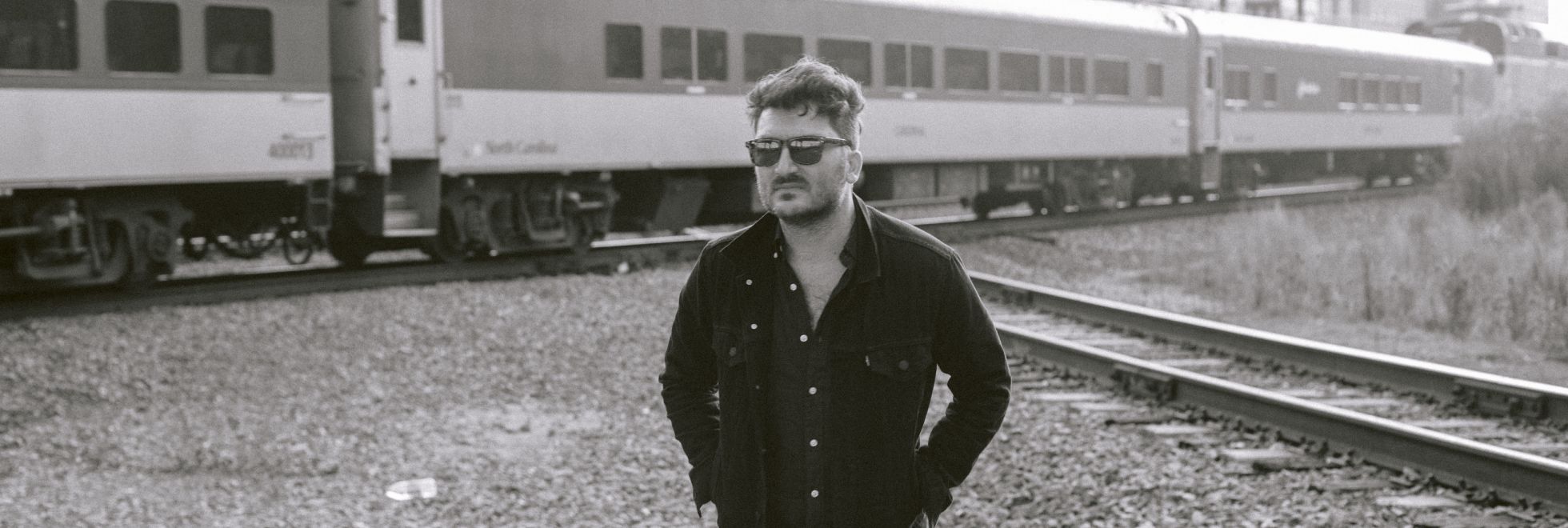Jesse James DeConto discusses The Pinkerton Raid’s new album, The Highway Moves the World and shares his experiences with the complexities of human relationships
Durnham, N.C singer and guitarist Jesse James DeConto’s project The Pinkerton Raid has dropped a new album The Highway Moves the World. The record has received lots of love and praise from outlets such as Under the Radar, Shindig!, American Songwriter, WUNC, The Spill, Ghettoblaster, and Indy Week, just to name a few. With a split sonic personality of indie rock & indie folk, The Pinkerton Raid tracks encompass a distinct variety of sound. As a concept album, Highway delves into the complex and intrinsic nature of family relationships and dynamics. Each track has inspiration drawn from different members of DeConto’s family, resulting in a record saturated with the emotional depth that comes from the deepest bonds.
“My parents raised us five siblings in New Hampshire,” DeConto says, “and then I grew up, went to college, got married, had my first kid, spent three or four years back in New Hampshire after school, and moved down to North Carolina, expecting my second kid at the time. Essentially, the album’s title track, ‘Highway Moves the World,’ is the story of how we all ended up together again—how my mom followed me and my kids, and how my four siblings all eventually came along, too. It’s a story that serves as a window into all these important family relationships in my life, which is something I get pretty deep into on the new record.”
With an open and expansive array of possibilities shining out of the album, The Highway Moves the World was produced by David Wimbish of fellow North Carolina band The Collection and features 12 songs. These songs consist of complications within the nature of DeConto’s closest family members and a string of longtime pals. The music holds great power in presenting beautiful moments of joy and wonder as well as profound elements of betrayal and disappointment. It’s a collection of songs all listeners can get behind.
Recording most of the album in the midst of the pandemic, (as January turned to February 2020) DeConto got to work with bassist Jonathan DePue, drummer Scott McFarlane and guitarist Garrett Langebartels. With album release plans being moved around due to covid lockdown, they dropped a single in 2020, Dream the Sun. Tributing DeConto’s sister Katie, the track honors her endless efforts of arts advocacy. The Highway Moves the World evokes imagery of legends within forests and unknown lands as well as blackjack games and French bistros, photo albums and feminist awakenings. These themes all stand in as backdrops and props for genuine and authentic human drama. Shindig! magazine called the song Merseybeat “a long-faded sound from a distant time and place … shimmering as if born anew.”
DeConto chats with Happy about his leaky basement rehearsal space when he was 19 and its significance to the creation of The Highway Moves the World. Dive into DeConto’s adventures within and around the killer album.
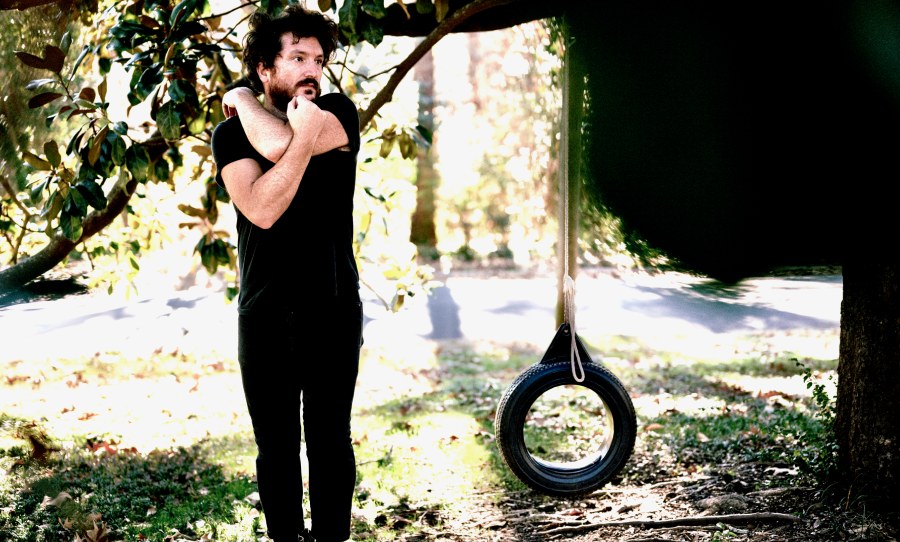
HAPPY: Tell us about your musical family’s origins, favourite memories and moments that you hold close, and that have propelled your musical journey.
THE PINKERTON RAID: My Dad made his living as a musician when I was a little kid in the late ‘70s and early ‘80s. He was playing at The Alewife pub outside Boston, and a waitress interrupted him in the middle of Simon & Garfunkel’s “Cecilia” to tell him he had to go to the hospital because his first kid was being born. He knocked over his mic, filled the room with feedback, and everybody cheered. I have vivid memories of him singing me Kenny Loggins’ Return to Pooh Corner in our living room in Lowell, Massachusetts. Mom would take me to see Dad play at this New England restaurant chain called The Ground Round. They had free popcorn while you waited for your food—this is the kind of thing that’s important to a 4-year-old! Dad would play Donkey Kong on his breaks.
He eventually focused more on real estate and less on music, and it seemed to me that he had to make a choice between fatherhood and a music career. It’s always more complicated than that, but I think it’s part of what has propelled me to keep trying. I more or less waited until my kids were in school to dip my toes into touring, and now they’re both entering adulthood and my 40s look like other people’s 20s in terms of the possibilities. So I keep going with my family’s blessing, especially the support of my spouse Julie. Music as a profession is a volatile thing, not for the faint of heart, but it’s kind of like physical exercise—hard to give up for all it brings to my life, even when it hurts. I am more alive for doing it.
HAPPY: Each song on this new album explores the complexity of family relationships in a highly expressive way. Would you like to share what the process was like for you to tap into these emotions, memories and relationships, and how it manifested through your music?
THE PINKERTON RAID: I didn’t know it was happening until I was more than halfway through. This is my fifth full-length album, and usually at the end of an album cycle, I’ve got songs left over that I like but that didn’t seem to fit with what came before. Sometimes, Brothers was one of those; Blood in My Eyes was another; though it’s about a friendship, I wrote in the language of family, of brotherhood. I think there was an immediacy of experience and feeling in these songs that carried through to the rest of the album—most of what I wrote is what I was living day to day. The distance of someone I love, betrayal by someone I love.
Once I got my head in that space, then my songwriter’s ear started noticing—what’s it like for my teenage daughter growing up in the time of Trump, #MeToo and the Women’s Marches? Is my wife getting catcalled any more often than she always was? Or is she simply finding her voice to join the fight in all of this, and so she’s telling me about it now instead of just taking it for granted? What happened to my ever-silly, joyful son when he hit adolescence? Is he really this person who suffers so intensely? Or is he still the kid who would distract and protect the rest of us from our own struggles with his antics?
As hard as it was to face down all of this pain, I found myself bearing witness to their strength, courage and self-knowledge. And so I started to think about the rest of my family, to ask myself how they represented some specific facet of the human spirit: to celebrate my brother’s risk-taking, generosity and lust for life; to hold up my sister’s empathy, the big feelings that made her a difficult child and a great middle-school teacher; to give my other sister permission—in the form of a song—to quit the band and get some rest. She’d already quit by then—so it was more giving myself permission to let her go; to claim the musical heritage that Dad gave us and that unites us, even when we might sometimes cause one another pain.
The Highway Moves the World was one of the last songs I wrote for this album. My parents and all four of my siblings ultimately followed me from New Hampshire to North Carolina, some with a stop in Florida. I often find myself explaining to curious people how in the world that can happen in a global, mobile society in the 21st century. If you strip everything else away, it was Mom’s bottomless love for me and my kids that started the chain reaction. I’ve tried to be honest about what’s hard and to hold tightly to what’s good about being part of a family, and it seemed to me that this story could be a way to tie it all together.
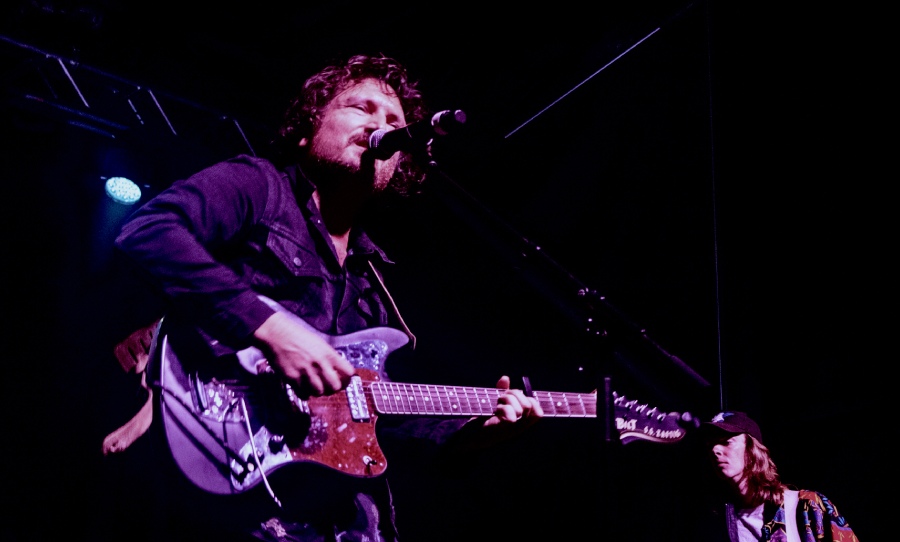
HAPPY: We’d love to hear some memories of your leaky basement rehearsal space that the song Basement Tapes reflects.
THE PINKERTON RAID: Growing up I had a fraught relationship with music. On one side, I had Dad’s rock & roll. On the other, I had Mom’s fervent since recovered from Christian fundamentalism. I had to work some things out for myself even to feel ok about playing music. I finally started dabbling in some guitar when I was 17, which is really, really late, and then I gave up quickly. I came home from my freshman year of college to find my brother playing guitar with my Dad, and finally I had the determination to stick with it. I picked up the bass, and we started jamming together with my uncle on drums.
Dad would get us gigs, like a backyard cook-out, an office party, a wedding on a little cruise ship. We played The Beatles, Creedence Clearwater Revival, Led Zeppelin, The Eagles, all sorts of classics and one-hit wonders from the ‘60s and ‘70s. Because of my internal religious conflict at the time, I don’t feel as connected to the music my friends were listening to in the ‘90s as I do with the music my dad had been introducing to me all along. I think working out the vocal harmonies for The Beatles’ All My Lovin’ or Lucy in the Sky or Come Together in that basement was formative for me.
There was a finished, carpeted room in the basement that my brother and I shared as a bedroom during my college summers. Our rehearsal space was on the concrete floor outside that room, at the bottom of the stairs from the kitchen. The carpet and the floor would get soaked in a heavy rain. We never had a lot of money growing up, and as a teenager not understanding that every home requires constant maintenance, it felt like there was something fundamentally wrong with being unable to keep water out of the basement. I guess it was some kind of metaphor, even back then.
I got engaged my senior year of college. I was in Ohio. My fiancée and I had to decide where to go next. I’ll never forget Dad asking me to come home so we could play more music together. It’s incredible, isn’t it? I think a lot of dads would have wanted to know where I was going to find a job; my Dad just wanted to play music together. I ended up writing for a newspaper in Ohio for about 10 months, and then I got another job in New Hampshire, and my wife and I moved briefly into that basement until we could find our own place closer to work. We celebrated my daughter’s first birthday in the kitchen at the top of the stairs.
We kept playing music there, through my parents’ conflicts and separations, as long as I was in New Hampshire and even when they all moved to North Carolina. The essence of who I am and who we are is stored in my memories of that basement, all the good stuff and the hard stuff.
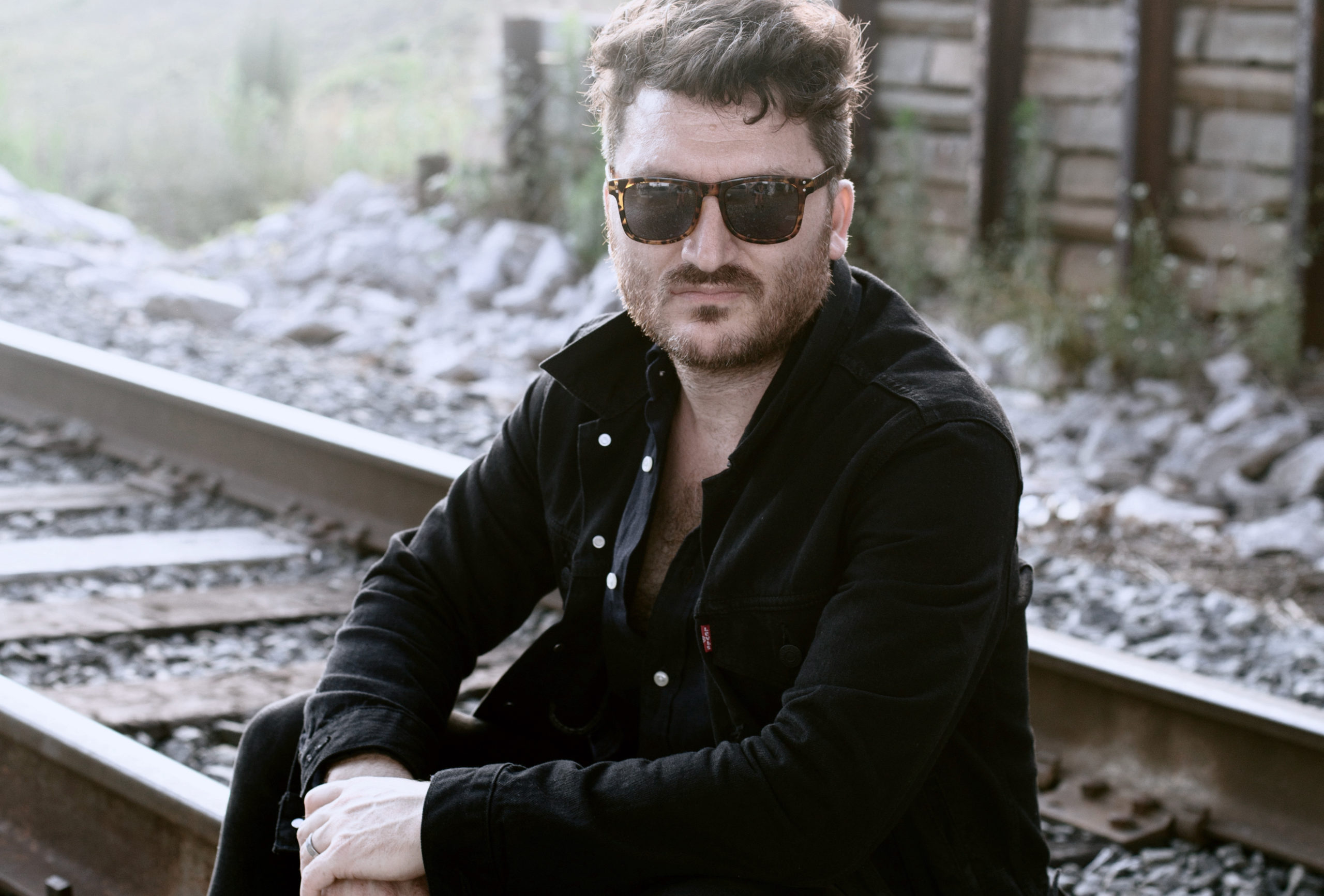
HAPPY: Tell us about your sister Katie, and how her work for arts advocacy inspired your single Dream the Sun that you dedicated to her.
THE PINKERTON RAID: Katie started singing with us in that basement in New Hampshire. She must have been about 12 years old. She’s the middle child and the first one who got any classical music training. She got real lessons on the flute and piano. We had a family band after everybody moved to North Carolina, and then our brother Marco had to quit, and so I decided that was the end of it and tried to form a band with some other guys I met on CraigsList—people I thought could do things my family couldn’t. But that lasted about three months and then Katie was in my new band. We sang together in The Pinkerton Raid from 2011 to 2017 after we finished Tolerance Ends, Love Begins. My brother Steven was with us for most of that time too.
I’m nine years older than Katie, and you could barely say we even grew up together, but we somehow understand each other. We’ve both always loved words—loved hearing, reading and working with them. She got a job editing textbooks out of college, but she got laid off within a couple years, so she and a college friend opened a place called Mercury Studio. It was a collaborative co-working space for creatives—photographers, writers, designers—to have a desk and share utility costs. This was around 2010 before there was such a thing as the corporate co-working industry. They held dance parties and artist markets, even a book release for a memoir I wrote. The office space performed a function, but what they really accomplished was to build a community.
Eventually, Mercury Studio merged with a local arts retailer called The Makery to become The Mothership, a feminist, egalitarian collective putting on events, while also running a co-working space and a shop where local artists, artisans and vintage curators could rent shelves or racks. It was like you were shopping in a funky little mall. It looked like an old warehouse full of desks and computers and pearl-snap shirts and handmade greeting cards. Beneath the surface, it was a community of dreamers chasing their dreams.
Katie and her partner Megan carried the weight of all these dreams on their shoulders. The space would flood in heavy rains. A woman rented a desk and then started living there overnight in violation of city code. There were conflicts about parking in a gentrifying neighbourhood. A big-time music festival came in and all but forced The Mothership to shut down so they could commandeer the space for a week. It was hard–hard to run the business with a customer base motivated by creativity more than commerce, hard to watch creative people struggle, despair and give up on their dreams. Katie and Megan got matching tattoos on their right shoulders: The sun, underneath a mountain range, before it rises. They needed to look in the mirror and see that the sun is there, even in the dark.
The Mothership finally shut down during the pandemic. It was a sad thing for a lot of people. It’s still sad for me not to have her in the band. But Katie started a family and a regular job, without the 24/7 demands of entrepreneurship. When I wrote Dream the Sun, I was honouring some of the ways she had already begun to say ‘no’ in order to take care of herself and her own priorities. In a way, the meaning has changed because even though the sun did later set on The Mothership, it still rises for her and for all of us, in different ways, if we remember to notice.
HAPPY: The album’s title track, Highway Moves the World, is the story of how your family scattered but all eventually came together again. Where did everyone end up together? Who sings in unison with you in the chants part of the song?
THE PINKERTON RAID: We’re in Durham, North Carolina. My brother Marco, the second kid between me and Katie, was here for about 12 years but moved to Hawaii with his wife and three kids before the pandemic. My three other siblings, their partners and their kids are all here, and so are our parents.
The unison chanters in the song are somewhat of a metaphorical family choir. They did include Katie and also Steven, who was an active member of the band from 2012 to 2018 and still gets involved from time to time, and his wife Caroline, who has also played with us on occasion. But we also had our current guitarist / bassist Derek Skeen, a past drummer Fleming Talton, and our friends Sarah Shearin and Tori Elliott-Gingerich from the North Carolina band Victoria, Victoria.
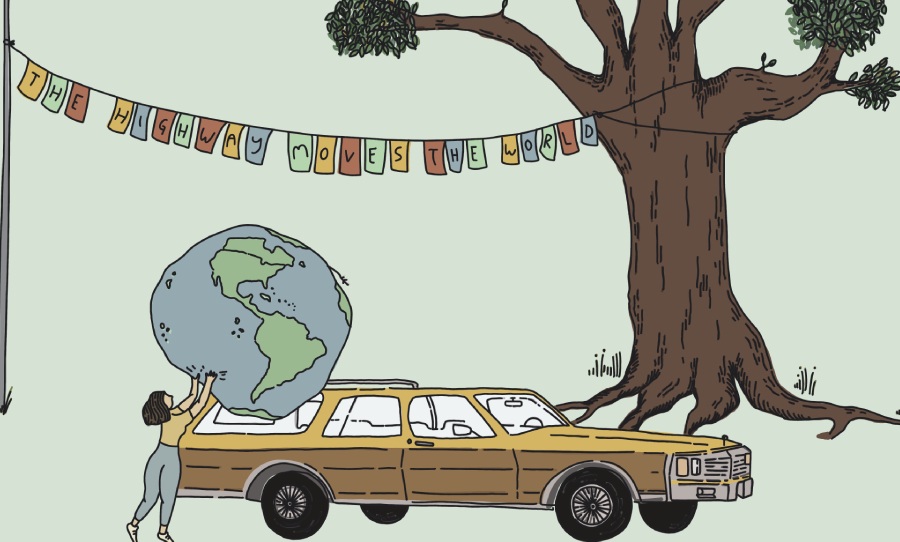
HAPPY: Tell us more about the hometown you grew up in.
THE PINKERTON RAID: That’s a tough one. We moved about a dozen times before I graduated high school. I grew up mostly in the Merrimack Valley of Massachusetts and New Hampshire. My parents made a lot of their living in the ‘80s and ‘90s flipping houses, and we would usually live in them while Dad was fixing them up. We lived in the mill cities of Lawrence and Lowell, Massachusetts, until I was 6 years old. I like to say I lived in the same city as Kerouac. Then we moved to New Hampshire. First, we were in a little village called Asheulot on the Vermont border; we lived in an apartment carved out of an old farmhouse, rented to us by our best family friends. Us kids could walk across a covered wooden bridge to buy baseball cards at a 100-year-old general store—it was that kind of New England quaint. After a couple years, we moved all the way across the state to North Beach in Hampton. That property had four little vacation cottages one block from the ocean, and we lived in each one as Dad fixed up and sold the others. I was away at college in Ohio when my family moved to another mill city, Manchester, New Hampshire—with 100,000 people, it’s the biggest city in a tiny state. That’s the house from Basement Tapes.
After college, I ended up writing and editing for The Portsmouth Herald in the Seacoast region east of there, not far from Hampton. That’s the area that feels most like home. We raised my first daughter there ‘til she was 3 years old. My parents bought and ran a one-court racquetball club for a few years in a little town called Brentwood just inland from Hampton. There was a good-sized office and storage room where Dad started a band again in the early ‘90s. I remember during the recession he wrote a song to president George H.W. Bush called I Can’t Afford a Good Night Sleep.
HAPPY: What was the writing and recording process like for the album, and what was it like working with producer David Wimbish of The Collection?
THE PINKERTON RAID: Songwriting has always been a pretty solitary effort for me, but the musical arrangements are usually collaborative. David challenges me on certain aspects of a song—try a different lyric here, see if you can give the chorus a better melody—and that boosts my confidence that we’re building on a solid foundation. The Highway Moves The World is the second album I arranged in live rehearsals with my long-time rhythm section Jonathan DePue on bass and Scott McFarlane on drums. Starting with our last album, Where the Wildest Spirits Fly [2018], David really pushed us to create dynamic arrangements with just guitar, bass and drums first and then see if the songs needed anything else. Another guitarist, Garrett Langebartels, joined us toward the end of pre-production, so we had dual guitar parts worked out going into the studio.
I’d often start by recording an acoustic guitar, and then we’d all play live together over that with bass, drums and electric guitars. “Merseybeat” was recorded like this with David engineering at Arbor Ridge Studio in Chapel Hill. This was over a few days straddling January and February 2020. That song ended up with no overdubs—it’s just as we originally cut it, live in the studio. The four of us also tracked Cinnamon Sweet and “(Not All) The Boys Will Be Boys live and later overdubbed background vocals on Boys with a small choir of women at David’s house after the covid vaccines came out. We took the same approach with Blood in My Eyes, although we came up with the arrangement on the fly over a couple days in the studio. David laid down the organ at the start, which served as scaffolding for the song.
David had the idea and recorded the rushed-beat rhythm guitar behind my snaking lead part on Au Cheval during our first few days in the studio. Then during quarantine he worked on the chiming arpeggios that elevate the song at the end. That song has my favourite energy on the album, a lot of the credit going to David’s production.
I sent Highway, Lisbet Cries and Sometimes, Brothers to Charlie Humphrey from Holy Ghost Tent Revival in Asheville, and he added trumpet remotely. It took a while to figure out whether Basement Tapes needed anything more than guitar, bass, drums and the lead vocal, but I experimented with the choral singing and then found this cool MIDI sample of a mic’d grand piano played through an overdriven amp, and David and I both really liked what I was able to record at home. Once we were able to track the choir, the song finally felt complete.
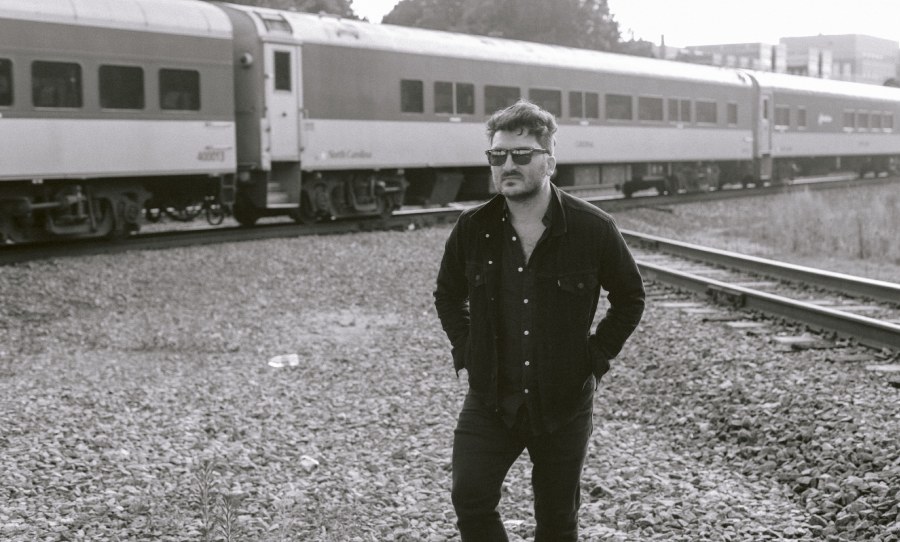
HAPPY: What were your struggles and issues recording this album on the brink of the pandemic?
THE PINKERTON RAID: The biggest thing was having to wait more than a year for people to feel comfortable with a choral singing session. I had always planned on a ‘waterfall’ release of single after single with a long run to the full album release, so it was just a matter of being able to finish enough singles to make that work. We did that with Dream the Sun, Cinnamon Sweet, Au Cheval, Lisbet Cries and The Magical Flying Rowan Tree, with me tracking background vocals remotely, and that gave us five singles to release between March 2020 and the end of 2021. It was actually six because we put out Rebel Mama Blues in October 2020 but ended up leaving it off the album.
HAPPY: Tell us about the forest legends, foreign lands and feminist awakenings that are explored on this record.
THE PINKERTON RAID: I’ve hinted at this stuff in earlier questions, but the rowan is a cold-climate tree in Northern-hemisphere mythology—hence, some of the legends and lands. It’s supposed to protect us from evil spirits and give a window into the fairy world. I only had an inkling of all this when we gave my youngest child the middle name Rowan. It’s really hard to watch some kids turn into teenagers and lose their naive happiness about the world. When this happened with my son, I needed to hold onto the essence of the child I knew, hoping that he would find his way back to himself, which he has already started to do in the past few months. The legend helped me keep faith, because I knew him as this kid who would protect us by doing a little dance or telling a little story or a joke when the rest of us would get into some kind of conflict, beset by evil spirits.
Au Cheval is not exactly inspired by foreign lands, but it is a metaphor that comes from French cuisine. It literally means “on horseback,” and it refers to serving a fried egg on top of a steak. It’s also the name of a restaurant in Chicago where my brother Steven once waited four hours for what was supposed to be the best burger in America. When I was writing the song, I found a famous quote by playwright Pierre Corneille: à vaincre sans péril, on triomphe sans gloire. It means, “to win without risk is to triumph without glory.” There are so many ways where my brother lives with more joy and passion than I do, and if this album is anything, it’s a celebration of the differences among siblings, among family members, and human beings.
Merseybeat is a song I wrote with the narrative “source material” coming from our old drummer Scott. His mother Helen grew up on the Wirral Peninsula, south of Liverpool, on the west coast of England. The music of that place has shaped both of us so much. Scott gave me all these images of what the place and the people are like. I wanted to pay tribute to my musical heroes, and I was grateful to have a story to tell that was in my orbit but from somebody else’s perspective. Helen had battled cancer off and on for decades, and the song became a tribute to her after she passed in early 2022.
The feminist awakenings on the record have to do with watching my kids and wife grapple with patriarchy in this era where we could no longer keep our heads in the sand about how powerful—and not so powerful—men have been getting away with disrespecting, objectifying, harassing, even assaulting women throughout human history. Women were telling their stories on TV, on Twitter, marching against Trump or Kavanaugh or Weinstein, and so this is what we’re talking about at the dinner table every night. My spouse is telling me more and more stories about what strange men will say to her out in public. My daughter is telling me if this is what men are like she doesn’t want anything to do with them. It was hard to know if this was just a phase, or if she would start to meet guys who would show her something different. But I just felt like it was my job to affirm and amplify what they were saying. That was the genesis of Cinnamon Sweet, (Not All) The Boys Will Be Boys, and even The Magical Flying Rowan Tree, because the trauma of adolescence has a lot to do with gender and the way its rules can crush our spirits.
HAPPY: What did you read last that opened your eyes and mind to a new perspective?
THE PINKERTON RAID: I just read How to Write One Song by Jeff Tweedy. His songwriting advice is to break free of the meaning of words and just play with them. So, he’ll compile random words about a topic and then start putting them together in different orders. I tend to think so much about telling a story that I’ve never written a song that way. But it’s Jeff Tweedy, so I’d better pay attention!
I’m currently reading Sapiens: A Brief History of Humankind. It describes battlefield amputations before the advent of antibiotics or anesthesia, and how “medics” were really just butchers and carpenters because they had the necessary skills. It was a good reminder of how small my problems are, and how lucky I am to be alive in 2023.
HAPPY: What’s something someone has said about your music that you hold close to you?
THE PINKERTON RAID: Maybe you know Bruce Baker at The AU Review there in Australia? They premiered Lisbet Cries as a single in 2021, and he said the song “would not be out of place amongst the songbooks of some of the great Irish singer-songwriters.” I just thought that was an incredibly grand and generous thing to say about my music. I guess it resonates with what I’ve heard others say to me directly—that a song will make them feel something or make them feel like they’re part of something. I have Irish in my blood through my maternal grandmother, and I have this sense that Irish music is simultaneously artistic and communal, and that’s how I experience music.
HAPPY: What are five Beatles songs that you absolutely adore / are inspired by?
THE PINKERTON RAID: Just five? OK!
- In My Life
- Dear Prudence
- Here Comes the Sun
- Blackbird
- Eleanor Rigby
Stream via Spotify below, The Highway Moves the World and open your mind to the complexities of human relationships.
Interviewed by Olivia Adams.
Photos supplied.
